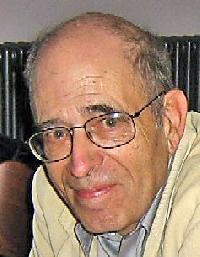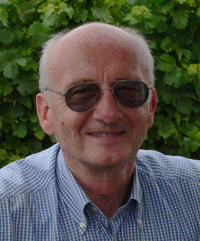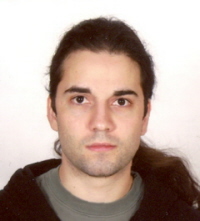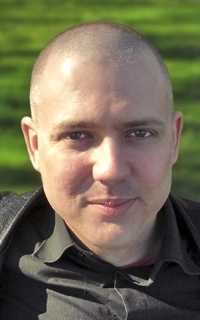| Pagine: < [1 2 3 4 5] > | Can someone be a native speaker of more than one language? Iniziatore argomento: Spring City (X)
|
|---|
Kim Metzger 
Messico
Local time: 21:05
Da Tedesco a Inglese
| Two different things | May 27, 2007 |
Henry Hinds wrote:
I would never have been able to become a translator if I did not have a native knowledge of English, Spanish and Translating. Now that's three. All three require different wirings of the brain acquired through years of effort, and the wiring must be good.
All that takes a lot of work and a lot of miles, and that's why I say we are made, not born.
Henry - I fully agree with you that the skills it takes to be a translator are hard-won. A translator needs native-like proficiency in the source language. I learned German when my family moved to Germany when I was eleven. I attended a German school and spoke and wrote German in school and after school for four years. I have spent a total of 20 years in Germany. Most Germans find it hard to believe me when I tell them I'm an American.
But claiming native speaker status is not the same thing as claiming the translation skills of a native speaker. Yes indeed - that takes a lot of work. You have "native knowledge" of Spanish - no doubt. And it took years of effort - no doubt.
Native speaker by itself means simply that a person (as a rule) grew up speaking the language from childhood. It doesn't tell clients much about translation skills. That's an entirely different kettle of fish.
[Edited at 2007-05-27 20:22]
[Edited at 2007-05-27 20:25]
| | | | Lia Fail (X) 
Spagna
Local time: 05:05
Da Spagnolo a Inglese
+ ...
| same confidence? | May 27, 2007 |
myrcarromero wrote:
There are some cases, very few, but they are, of people born, raised and literated in bilingual even trilingual communities. Switzerland, Belgium, North European Countries, and in Spain, Catalonia, Galicia, Basque Country. They learn two or three languages since they born, and feel the same confidence in both languages. With Gaelic and the languages spoken in Ireland, Scotland, I know that the local governments are trying to do the same, but I am not aware of the results so far.
My own experience - living in a small town in Catalonia - is that people here always speak CAT and almost never ES (except for immigrant communities), so I can't imagine that they would feel equally confident with both.
What's more, bilingual communities often experience language as politics (as in Cataunya), which affects their feelings about one or the other language - that also affects use. One key element in learning and using a language is actually liking its culture:-)
| | | | Klaus Urban 
Local time: 05:05
Membro (2005)
Da Inglese a Tedesco
+ ...
| I fully agree with Henry | May 27, 2007 |
I am a native speaker of German, no doubt. However, when it comes to gardening, having translated 10 major English rose books into German, I am better in English than in German, because most of what I know in gardening I learned in England, and I lack the German terminology. So my mother tongue, without doubt, is German, but when it comes to gardening?
Just to make the issue a bit more complicated!
Klaus
| | | | Henry Hinds 
Stati Uniti
Local time: 21:05
Da Inglese a Spagnolo
+ ...
In memoriam
"But claiming native speaker status is not the same thing as claiming the translation skills of a native speaker. Yes indeed - that takes a lot of work..."
The mastery of the languages is what is native, and the translation skills come after that, which are not natural to the brain except on a more elementary level. Actually my point is that none of it is "native", we are not born or even brought up with any of it necessarily.
We have to work for every bit of it.
| | |
|
|
|
Marcelo Silveyra
Stati Uniti
Local time: 20:05
Membro (2007)
Da Tedesco a Inglese
+ ...
| You can definitely be a native speaker of more than one language....sort of | May 27, 2007 |
Regarding the ongoing discussion between Henry and Kim:
I think it all depends on just how strict we are with the term "native." If we are 100% strict, then the vast majority of people cannot be native speakers of more than one language because most people do not grow up in an environment where more than one language is spoken at home, at school, AND on the street.
However, I also think that when we speak about "native speaker ability" (which, to me, means having exact... See more Regarding the ongoing discussion between Henry and Kim:
I think it all depends on just how strict we are with the term "native." If we are 100% strict, then the vast majority of people cannot be native speakers of more than one language because most people do not grow up in an environment where more than one language is spoken at home, at school, AND on the street.
However, I also think that when we speak about "native speaker ability" (which, to me, means having exactly the same abilities as a native speaker), it is mostly a matter of natural linguistic intuition, by which I mean that the language (or languages) spoken is truly hardwired into our brains.
As an example, I spent a relatively significant percentage of my childhood in the U.S. by spending 10-15% of the year there, and in Tennessee of all places. I went to an American School in Mexico (which I know does not guarantee even a good level of English, by the way), had American friends with whom I only spoke English because they couldn't speak a word of Spanish, read John Milton at the same time I was reading Cervantes, etc. Now, if you ask me what my primary language is, I will say Spanish - but do I have the linguistic intuition of someone who grew up exclusively in the U.S.? I certainly think so. For instance, no one in California ever believes me when I tell them I'm from Mexico. And I mean no one - people have often asked me for my passport (which is ridiculous, of course, because I don't carry the thing around with me)...then again, this started way before I was 11 (not the American School, but the spending time in Tennessee), which goes along with Kim's offered definition about learning a language from early childhood.
Now, let me tackle my German instead. I've read Goethe, Thomas Mann, and Kant, which, and not to sound pedantic, a lot of German speakers cannot read. I do have a slight accent when speaking and won't say I speak perfect German, but Germans (I haven't talked to people from Austria or Switzerland in a while) are often shocked at my level of German (which I'm sure is still way below Kim's anway). And I would never ever say that I am a native speaker of German or that I have "native speaker ability" (by which I mean full-blown native linguistic intuition) or anything of the sort. I can understand the language perfectly if I'm given a full document to translate, but it's not hardwired into my system. It's pretty automatic, sure, but it's not really hardwired - I don't have the natural intuition that I have with English and Spanish. And as a result, I've told many people that I cannot translate into German, even when the pay would have been good.
So, for me, it's more about "native speaker ability" than "native speaker status." I mean, in the case of Kim, who moved when he was 11 - does that mean that he is not really a native speaker of English either because he missed growing up in an English-speaking environment during a fundamental part of linguistic and behavioral development? Hell no. No one would even think about saying that. And what about army brats who switch countries every 2 or 3 years? If we assume that the language has to be spoken outside of home as well, then, theoretically, they wouldn't even have a native language, but that's definitely not the case. So at least we can't be 100% strict about the actual term "native."
The issue for me is intuition, and much like Kim's definition says, intuition replaces education as far as language structure is concerned. That's how I function with both English and Spanish, but definitely not with German (and definitely NOT with Finnish, which I am now learning because of my wife), where my learning was based on the good ol' Nominativ, Akkusativ, Dativ, Genitiv, Plusquamperfekt, etc. In theory, Kim is absolutely correct: people who are not constantly exposed to a language from early childhood are not native speakers. Being a native speaker is not a matter of proficiency - it's a matter of intuition. However, there are always exceptions to these rules. Certain human brains are just wired differently, and I'm sure that some people's brains can still receive a "language memory imprint" at a later point in life (just like certain people go and become engineers once they're in their 70s even if they never took any advanced math, physics, etc. before...unbelievable, but I've seen it happen).
So, to make a long story short, I think that Kim is actually correct, but that Henry might very well be (and from his very intuitive Spanish, I don't actually doubt that he is) one of the exceptions that I'm talking about. However, Henry, I actually think that your case is way out of the norm; I believe that the way that you use Spanish shows a predisposition for the "linguistic memory imprints" that I was talking about. Most people who are extremely proficient and well-versed in Spanish, regardless of their work and effort, never acquire the intuition of a native speaker - who in turn really does nothing but absorb it from his environment. Now, the US-Mexico border: that's a pretty unique thing, and it would take an entirely different forum thread to exhaust that topic!
Now, regarding people who "claim" that they have native speaker abilities or are native speakers on ProZ and who are clearly lying (Henry will appreciate the fact that one of these people translated "Yo también hijito, yo también" for "Me too, sonny"), and which is perfectly obvious when reading their forum posts and the awkward flow of their claimed "other native language:" that's a different matter entirely. In fact, Henry and I were partaking in a different forum thread regarding a very similar issue with the different kinds of Spanish....and, wow, the stuff some people do for money. Blows my mind.
Small addition, since my comments seem to have been slightly misinterpreted: when I say that there are exceptions to the rule, I don't mean that these exceptions are anything other than extremely rare, and I definitely do not mean that translators miraculously have a higher percentage of such exceptions. To me, Kim's initial contribution about "intuition" is the truly defining aspect of what makes someone speak a language like a native speaker or not. I'm sure we would all like to think otherwise regarding our own abilities (up to this day I pray that if I live long enough in Germany in the future, I might one day speak just like a German) of language absorption once we're past childhood, but I think that neurological research has proven, absolutely beyond doubt, that 99.99999% of us can't pull off "becoming" native speakers of a language once we're older.
[Edited at 2007-05-28 04:08] ▲ Collapse
| | | | Juliana Brown 
Israele
Local time: 23:05
Membro (2007)
Da Spagnolo a Inglese
+ ...
| Actually, it was me, not Viktoria! | May 27, 2007 |
David Webb wrote:
By definition they are born. But in the modern world, with education systems and what-not, we expect native speakers to have been exposed to at least 11 years of literate education. We must all have much larger vocabularies than our farming ancestors. Some native speakers who are bilingual in 2 languages may not have that full literacy in one of their languages. But I see that as Viktoria said, it might be possible for it to happen, particularly if the parents make sure it does. I am sure, however, that many claims of native proficiency in more than 1 language on proz.com need to be investigated further!
I was glad to be taken for Viktoria, as I often agree with her comments on a variety of subjects, but I think you'll find we are two separate people! I have to agree with a lot of what Henry is saying- that it is a constant state of self-education and self-knowledge. There seems to still be a lot of confusion around whether native equals proficient....
| | | | Mike Gogulski 
Slovacchia
Local time: 05:05
Da Slovacco a Inglese
+ ...
| the case of Slovakia | May 28, 2007 |
Slovakia, as the political entity rather than the land of the Slovaks, is relatively new, and has had a rather intense linguistic history.
To make a long story short, there are without question groups of people in Slovakia (or who grew up near its present borders) who are true, fluent native speakers of 2 languages. The combinations here include Slovak/Czech, Slovak/German, Slovak/Hungarian, Slovak/Polish, Slovak/Rusyn, Slovak/Romani, Slovak/Ukrainian and even small communities of S... See more Slovakia, as the political entity rather than the land of the Slovaks, is relatively new, and has had a rather intense linguistic history.
To make a long story short, there are without question groups of people in Slovakia (or who grew up near its present borders) who are true, fluent native speakers of 2 languages. The combinations here include Slovak/Czech, Slovak/German, Slovak/Hungarian, Slovak/Polish, Slovak/Rusyn, Slovak/Romani, Slovak/Ukrainian and even small communities of Slovak/Croatian.
Additionally, many of those who don't come from bilingual Slovak/Czech households consider themselves fluent in Czech also, both because of the linguistic similarities and the shared history of Czechoslovakia, where the use of Czech was dominant in media and publishing. I believe many of these, however, really only have fluent understanding of Czech, and not native-fluent production. The relationship between Czech and Slovak is so close, in fact, that I have more than once received jobs from outsourcers requesting SK-EN translation, only to find that the document was a mixture of both Czech and Slovak text.
So, short answer: yes, I think so ▲ Collapse
| | | | Henry Hinds 
Stati Uniti
Local time: 21:05
Da Inglese a Spagnolo
+ ...
In memoriam | Irish Language | May 28, 2007 |
This started off with the Irish language and then went into other areas but with some great debate and comments I think have been quite worthy.
Getting back to the original subject, it is surely the language spoken by many of my ancestors which I have never heard, not even in a dream.
Sad to hear it is in effect dying out.
| | |
|
|
|
Irene N
Stati Uniti
Local time: 22:05
Da Inglese a Russo
+ ...
| I agree with Henry and Marcelo | May 28, 2007 |
if this question shoots back at our profession and not just at the theory about how many angels can fit onto the tip of a needle. Otherwise I must believe that in order to get a brilliant mathematician all we have to do is make sure that h/h is born to two other mathematicians.
Somehow in these discussions false claims are always interpreted as a proof of overall impossibility. Beats me...
[Edited at 2007-05-28 15:27]
| | | | Spring City (X) 
Local time: 11:05
Da Cinese a Inglese
+ ...
AVVIO ARGOMENTO | I am sorry, Juliana | May 28, 2007 |
Juliana Starkman wrote:
I was glad to be taken for Viktoria, as I often agree with her comments on a variety of subjects, but I think you'll find we are two separate people! I have to agree with a lot of what Henry is saying- that it is a constant state of self-education and self-knowledge.
It was stupid of me not to check back and make sure I knew the name of the person I was replying to. I just remembered it was a Canadian and I have read a lot of posts by a Canadian called Viktoria.
There seems to still be a lot of confusion around whether native equals proficient....
Well, in that case I won't start up a debate over the meaning of the word "fluent"...
| | | | Spring City (X) 
Local time: 11:05
Da Cinese a Inglese
+ ...
AVVIO ARGOMENTO | Will Irish die out? | May 28, 2007 |
Henry Hinds wrote:
This started off with the Irish language and then went into other areas but with some great debate and comments I think have been quite worthy.
Getting back to the original subject, it is surely the language spoken by many of my ancestors which I have never heard, not even in a dream.
Sad to hear it is in effect dying out.
Henry, it won't go completely. Although a bit tokenistic, there is just enough government support to keep it going in some form. But the real areas where Irish is meant to be spoken - the Gaeltacht - with a population of 80,000+ have only 17,000 speaking Irish every day outside the school system according to the 2006 census. So even in the Irish-speaking areas, most people are never speaking Irish, or at least not on a daily basis.
Eventually, there may be no actual Irish-speaking areas left. But there is a network of schools teaching through Irish - and at least one in every county including Northern Ireland. 30,000 children attend primary school in Irish (not including children in the Gaeltacht) and 6,000 attend middle school in Irish (again, not including children in the Gaeltacht). So, although someone in Dublin will not be living in an Irish-speaking area, it is quite feasible for Irish to be his home language and for him to be attending an Irish-language school. These people probably will speak fluently but probably won't be full-blown native speakers as we have discussed.
Another "issue" with Irish is the government's mandating of an Official Standard Irish that is not spoken in any real Irish-speaking district, as it is a mixture of bits taken from different dialects. People who want to get jobs in Irish have to accept this standard, as it is the only language legislation is being produced in, and the Irish-language school system has led to the emergence of people who speak this artifical dialect fluently or even neo-natively. The genuine good Irish is spoken in County Cork, and was the basis of grammar textbooks published up until the 1940s (I have had to invest in a lot of antiquarian books) and also the basis of much of the revival literature. But when the numbers of native speakers in Cork began to decline, the government reoriented the standard away to a compromise between Cork and Galway and the very odd nod to County Donegal, producing the artificial compromise. The situation is much as if English declined in England, and the number of speakers who said "is not" fell quite low, but there was a larger population of people who spoke English and said "ain't" and so the government declared that "ain't" was standard English. Many learners refuse to learn standard Irish for this reason, owing to its highly dumbed-down quality. It has incorporated too many points from Galway, where a form of Irish that on historical grounds can be said to be completely ungrammatical is spoken.
So Irish probably will survive, but the genuine quality Irish of county Cork will eventually go, and even the authentic if not grammatically correct dialects of places like Galway will eventually go. But you will be left with a standard Irish designed by a government committee that incorporates features from various places willy-nilly regardless of whether grammatically correct. There was an Irish speaker from the Gaeltacht, Séamus Ó Grianna, who joined the Language Freedom Movement in the 1970s to oppose this artificial Official Irish and argued that Irish should be given a decent burial rather than artificially kept alive in a mangled form. But opinions will differ on what should have been done and what should be done now.
| | | | Rustam Nasyrov 
Canada
Local time: 23:05
Membro (2007)
Da Uzbeko a Russo
+ ...
| Advice needed | May 28, 2007 |
Is there anybody who could tell me how can I add a second native language to my profile? Thanks
[Edited at 2007-05-28 07:01]
| | |
|
|
|
Williamson 
Regno Unito
Local time: 04:05
Da Fiammingo a Inglese
+ ...
the official languages are Dutch and French. It is perfectly possible to have been taught at secondary school in Dutch, go to the Université Libre de Bruxelles and attend a postgraduate in English.
Other languages spoken : all E.U. languages (although I never heard Maltese), Japanese, Chinese, Russian...
It is also perfectly possible to put one foot in the Dutch-speaking part and one foot in the French-speaking part of Belgium. The same is true for French/German (region of Liège-Eu... See more the official languages are Dutch and French. It is perfectly possible to have been taught at secondary school in Dutch, go to the Université Libre de Bruxelles and attend a postgraduate in English.
Other languages spoken : all E.U. languages (although I never heard Maltese), Japanese, Chinese, Russian...
It is also perfectly possible to put one foot in the Dutch-speaking part and one foot in the French-speaking part of Belgium. The same is true for French/German (region of Liège-Eupen). ▲ Collapse
| | | | Spring City (X) 
Local time: 11:05
Da Cinese a Inglese
+ ...
AVVIO ARGOMENTO | Did you not understand the thread? | May 28, 2007 |
Rustam Nasyrov wrote:
Is there anybody who could tell me how can I add a second native language to my profile? Thanks
[Edited at 2007-05-28 07:01]
Many people are doubting here that anyone can be a native speaker of two languages, so it seems odd to ask this sort of question.
| | | | | Two different things | May 28, 2007 |
I think the problem is that there are two different meanings for "native". One is that you learned the language in childhood, the other is that you have an exteremely high skill level in that language. Those who claim multiple native languages are using the second definition, those who object are using the first.
The fact is, a person can be a native speaker (def. 1) and have less skill in the language than a definition 2 native speaker.
An example, according to today's... See more I think the problem is that there are two different meanings for "native". One is that you learned the language in childhood, the other is that you have an exteremely high skill level in that language. Those who claim multiple native languages are using the second definition, those who object are using the first.
The fact is, a person can be a native speaker (def. 1) and have less skill in the language than a definition 2 native speaker.
An example, according to today's newspaper, one in seven 17-year olds in France does not have the necessary reading skills to read a newspaper. As I can easily read the newspaper you could say (in very rough terms) that I have "better" French than at least 1/7 of the native population.
However, I am not, and never will be, a native speaker. Learning a language in childhood is fundementally different.
Another (rather interesting) example, I am currently taking a medication that has a side-effect that affects my use of language. This side effect has been fairly severe in my case but, rather oddly, only my English (my native language) is affected. Explain that one!
For the benefit of my customers, I should point out that a very helpful and understanding doctor has helped me adjust the dosage to minimise the side-effects while still providing most of the benefit and the side-effects mainly relate to spoken rather than written language.
Terry. ▲ Collapse
| | | | | Pagine: < [1 2 3 4 5] > | To report site rules violations or get help, contact a site moderator: You can also contact site staff by submitting a support request » Can someone be a native speaker of more than one language? | Trados Business Manager Lite | Create customer quotes and invoices from within Trados Studio
Trados Business Manager Lite helps to simplify and speed up some of the daily tasks, such as invoicing and reporting, associated with running your freelance translation business.
More info » |
| | Protemos translation business management system | Create your account in minutes, and start working! 3-month trial for agencies, and free for freelancers!
The system lets you keep client/vendor database, with contacts and rates, manage projects and assign jobs to vendors, issue invoices, track payments, store and manage project files, generate business reports on turnover profit per client/manager etc.
More info » |
|
| | | | X Sign in to your ProZ.com account... | | | | | |












